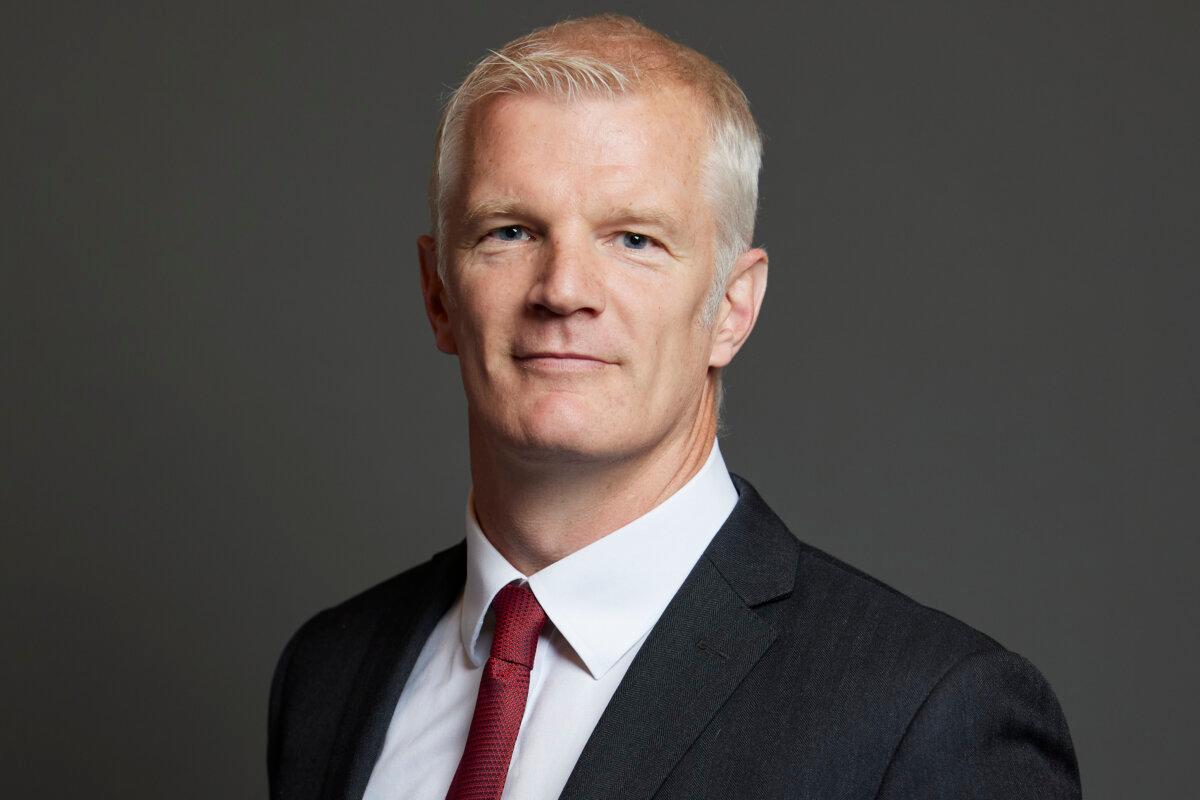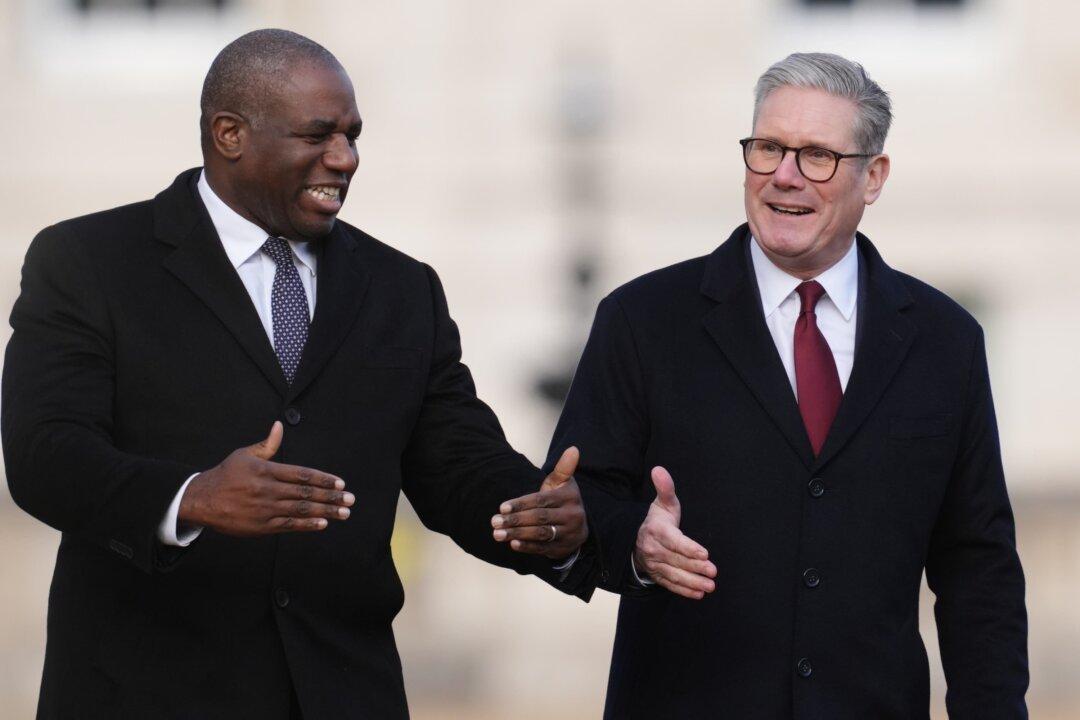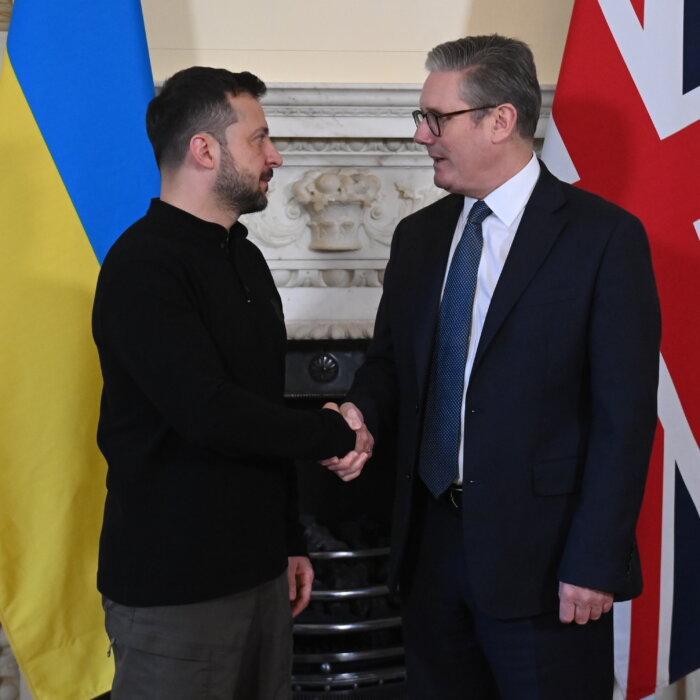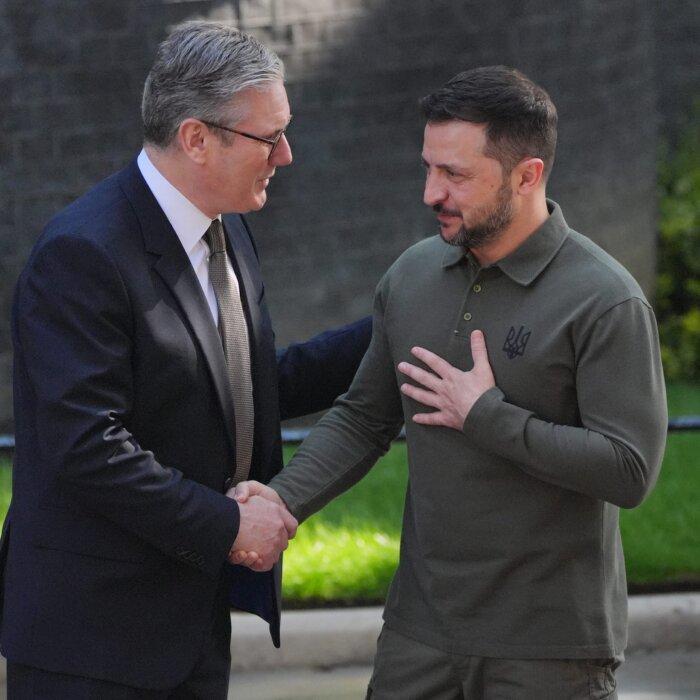Foreign Secretary David Lammy has urged European NATO allies to step up their defence spending ahead of U.S. President-elect Donald Trump’s imminent return to the White House.
Trump has been highly critical of European states relying on American tax dollars for their security, and has indicated he is not prepared to keep sending money to Ukraine.
At a meeting of NATO’s foreign ministers in Brussels on Tuesday, Lammy called on the UK’s other allies to “get serious” about the need to increase defence budgets, adding that “the time to act is now.”
The government is yet to set out its own timetable for increasing spending on defence to 2.5 percent of GDP.
‘Dangerous Times’
“We’re living in very dangerous times, and as we look across the world, with war here on our continent in Europe, with the tremendous aggression that we’re seeing across the Middle East, with the hand of Iran so present in the Middle East and with this rising conflict in Sudan and now in Syria, there is one country whose hand is in so much of it, and that is Russia,” he said.“And that is why, as we meet here discussing these important issues, it’s hugely important that we step up defence spending, across NATO allies particularly.
“In the United Kingdom, we are at 2.3 percent, heading to 2.5 percent as soon as we can get there, and we urge all allies across the NATO family to get serious about defence spending.
“All of our populations require us to understand the tremendous security challenges that we are facing at this time, the time to act is now.”
Trump’s Impact
The Brussels meeting come as politicians continue to adjust to the impact of Trump’s imminent return to the White House, as the president-elect previously enjoyed cordial relations with Putin, and has said he intends to help end the conflict in Ukraine on “day one” of his second term in office.According to the United States Government Accountability Office, Congress appropriated over $174 billion to Ukraine under outgoing President Joe Biden.
On Monday, Prime Minister Sir Keir Starmer acknowledged for the first time that negotiations might need to take place between Ukraine and Russia, saying that the smaller country needed to be put in the “strongest possible position for negotiations.”
But he also said that the UK would continue to back Ukraine “for as long as it takes.”
The Ukrainian conflict with Russia began in 2014, but escalated in February 2022, when Putin launched a wider invasion, saying he wanted to “demilitarise and denazify” the former Soviet Union state, following years of dispute over the Donbas region, where both ethnic Russians and Ukrainians live.
Both the Conservative and the new Labour government of the UK have offered continuing support and billions of pounds in funding to Ukraine.
Ukrainian President Volodymyr Zelenskyy has repeatedly insisted that lifting restrictions on Western resources—including British Storm Shadow missiles—to enable them to strike at Russian territory is necessary to bolster its position in the conflict.
The UK government refused to confirm reports that its long-range missiles had been fired against Russia earlier this month.

On the same day, a defence minister warned that the British Army would be wiped out in as little as six months if forced to fight a war on the scale of the Ukraine conflict.
Alistair Carns said a rate of casualties similar to that of the Ukraine–Russia conflict would lead to the army being “expended” within six to 12 months.
He said it illustrated the need to “generate depth and mass rapidly in the event of a crisis.”
In comments reported by Sky News, Carns, a former Royal Marines colonel, said that Russia was suffering losses of around 1,500 soldiers killed or injured a day.
“In a war of scale—not a limited intervention, but one similar to Ukraine—our army for example on the current casualty rates would be expended—as part of a broader multinational coalition—in six months to a year,” Carns said in a speech at a conference on reserves at the Royal United Services Institute defence think tank in London.
He added, “That doesn’t mean we need a bigger army, but it does mean you need to generate depth and mass rapidly in the event of a crisis.”
Official figures show the army had 109,245 personnel at the beginning of October, including 25,814 volunteer reservists.
Carns said: “The reserves are critical, absolutely central, to that process.
“Without them we cannot generate mass, we cannot meet the plethora of defence tasks.”
Carns, the minister for veterans and people, said the UK needed to “catch up with NATO allies” in placing a greater emphasis on its military reserves.







